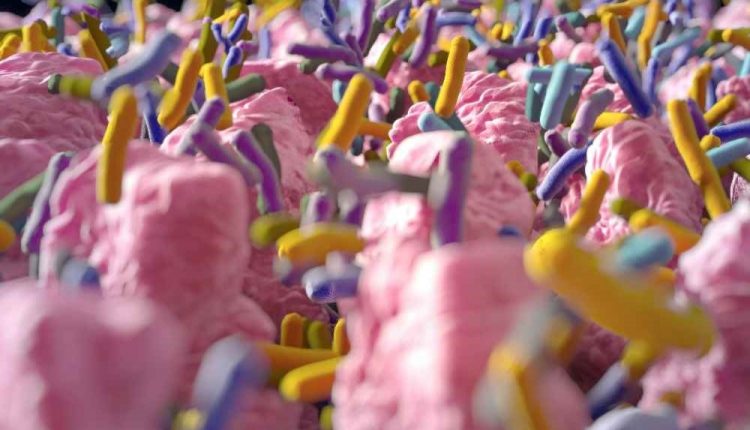
probiotics ລໍາໄສ້: ພວກມັນແມ່ນຫຍັງແລະພວກມັນຖືກນໍາໃຊ້ເພື່ອຫຍັງ
Probiotics ສ່ວນໃຫຍ່ແມ່ນກິນຜ່ານອາຫານແລະຊ່ວຍປັບປຸງການເຮັດວຽກຂອງລໍາໄສ້ແລະປ້ອງກັນລໍາໄສ້ຈາກການຮຸກຮານຂອງເຊື້ອແບັກທີເຣັຍທີ່ເຮັດໃຫ້ເກີດພະຍາດ.
Probiotics are live and active micro-organisms, mostly bacteria (including bifidobacteria and lactobacilli) and yeasts (e.g. Saccharomyces boulardii) similar to the ‘good’ microbes naturally present in our gastrointestinal tract, which if administered in adequate quantities, can bring health benefits.
The name originates from the Greek, in fact pro means ‘in favour of’ and bios means ‘life’, hence ‘in favour of life’.
Probiotics are mainly taken through diet and supplementation
They help to improve colon function, as well as to defend the gut from the aggression of pathogenic bacteria.
By definition, a probiotic microorganism must possess special properties and characteristics, namely:
- Be naturally present in the composition of the healthy human intestinal microbiota and thus be free of side effects;
- Survive the acidity of the stomach’s gastric juices, bile and pancreatic juices, remaining alive and viable all the way to the gut, where it exerts its effective function;
- Being able to adhere to the intestinal mucosa and colonise it by multiplying;
- Not cause side effects: their use must be safe, even in people with diseases;
- They must be able to develop in the intestine in an appropriate amount of time.
Probiotics are used to maintain the balance of the intestinal microbiota (eubiosis) and stabilise its activities, so that their use can modulate the intestinal microbial ecosystem to such an extent that it benefits the body.
Since probiotics are able to resist the action of gastric juices and bile secretions, they establish themselves in the intestine by adhering to epithelial cells, preventing the multiplication of pathogenic bacteria and creating a healthy and balanced intestinal microbial ecosystem.
In particular, their beneficial activity is expressed by improving immune defences, regulating intestinal motility and digestive processes, which are often put under stress by poor eating habits.
Furthermore, studies have shown that the action of probiotics on the intestine is also positive in cases of inflammatory bowel disease and food allergies, but also during respiratory and urinary tract infections.
Finally, they appear to play a role in reducing blood cholesterol levels.
Probiotics are mainly taken through yoghurt, milk and fermented, fibre-rich foods, but are also available in the form of over-the-counter ‘supplements’ in pharmacies
The microorganisms used in the production of probiotic products usually belong to the genera Lactobacillus (e.g. L. casei, L. acidophilus, L. johnsonii, L. rhamnosus, L. plantarum, L. crispatus), Bifidobacterium (e.g. B. animalis, B. breve, B. infantis, B. longum), and other microgranisms such as Saccharomyces boulardii, Enterococcus faecium, Bacillus subtilis, Escherichia coli, Clostridium butyricum. In addition, there are new generation probiotics such as Akkermansia muciniphila and Faecalibacterium praustnizii.
As a general rule, before taking a probiotic, it is a good idea to seek the advice of your paediatrician or family doctor, asking precisely why they are prescribed.
Since probiotics have the function of stimulating the rebalancing of the intestinal microbiota (formerly known as intestinal bacterial flora), they are often associated with the prescription of drugs and therapies that disrupt its balance, such as prolonged antibiotic therapies or other treatments of various dysfunctions of the digestive system and other microbial districts (uro/genital, vaginal, respiratory, etc.).
ອ່ານຍັງ:
ມີຊີວິດສຸກເສີນຫຼາຍຂຶ້ນ…ສົດ: ດາວໂຫລດແອັບຟຣີໃໝ່ຂອງໜັງສືພິມຂອງເຈົ້າສຳລັບ IOS ແລະ Android
ພະຍາດ Crohn: ມັນແມ່ນຫຍັງແລະວິທີການປິ່ນປົວມັນ
ເຊື້ອແບັກທີເຣັຍໃນ ລຳ ໄສ້ຂອງເດັກອາດຄາດເດົາການເປັນໂລກອ້ວນໃນອະນາຄົດ
Probiotics, Prebiotics And Lactic Ferments: What Are They And What Are They Used For?
Microbiota, ບົດບາດຂອງ 'ປະຕູ' ທີ່ປົກປ້ອງສະຫມອງຈາກການອັກເສບຂອງລໍາໄສ້ໄດ້ຖືກຄົ້ນພົບ
Paediatrics / ພະຍາດ Celiac ແລະເດັກນ້ອຍ: ອາການ ທຳ ອິດແລະການຮັກສາທີ່ຄວນຕິດຕາມແມ່ນຫຍັງ?



